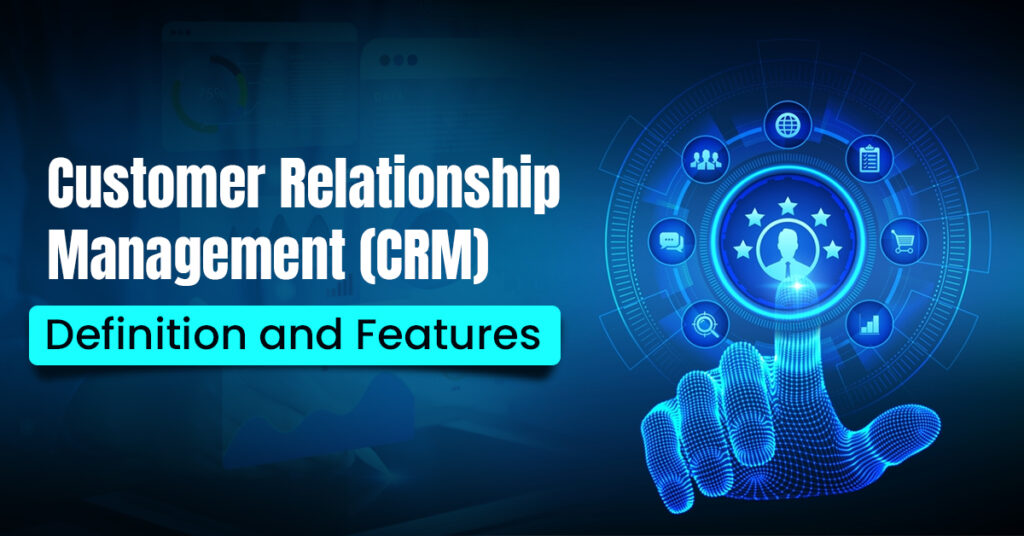Businesses are increasingly relying on Customer Relationship Management (CRM) in 2024 to manage and analyze customer interactions. In this blog, let’s find out everything about CRM and how it can help your business.
Introduction to CRM
Customer Relationship Management focuses on building and maintaining relationships with customers to improve satisfaction and drive growth.
Types of CRM Products:
1. Lead Management
Identifies potential customers (leads) and tracks their progress through the sales funnel, converting them into paying customers.
2. Lead Generation
Attract potential customers through marketing campaigns and capture their interest to turn them into leads.
3. Task Management
Assign and track tasks for the sales team related to lead nurturing, follow-ups, and deal closures.
4. Lead Distribution
Distribute leads fairly or strategically among sales representatives based on their skills, experience, or workload to optimize conversion rates.
Features of CRM
- CRM involves collecting and storing customer data in a centralized database that authorized personnel can access. Customer data management is one of its key features and includes contact information, purchase history, demographics, and more.
- Sales teams can manage leads, opportunities, and deals more efficiently with CRM. It provides insights into the sales pipeline, prioritizes sales activities, and automates sales processes.
- CRM can automate marketing tasks such as email campaigns, social media posts, and targeted advertising. This reduces manual effort and increases efficiency.
- CRM helps businesses manage customer service requests, track customer issues, and provide timely responses. It measures customer satisfaction and identifies areas for improvement.
Implementing a lead management system crm can provide numerous benefits such as improved customer relationships, increased sales, enhanced marketing, and streamlined operations.
By collecting and analyzing customer data, businesses can provide personalized experiences, targeted marketing campaigns, and efficient sales and customer service processes.

Popular CRM software
There are many CRM systems available, each with its strengths. Some popular choices include Nurture, Salesforce, HubSpot CRM, Zoho CRM, Freshworks CRM, and Microsoft Dynamics 365.
Choosing the right CRM
When choosing a CRM software, businesses must consider factors such as their needs, budget, scalability, and ease of use. There are three main types of CRM: Operational CRM, Analytical CRM, and Collaborative CRM. Each type has its strengths and weaknesses, so businesses should choose the one that best fits their requirements. Modern CRM software are user-friendly and intuitive. Many offer training resources and support to help you get started.
Customize the CRM system to fit specific business needs
You can customize a CRM system to fit your specific business needs. In fact, many CRM platforms offer a range of customization options to ensure they align perfectly with your unique workflows and data requirements.
Conclusion
Businesses can leverage the power of CRM to build and maintain long-lasting customer relationships. By collecting and analyzing customer data, businesses can provide personalized experiences, targeted marketing campaigns, and efficient sales and customer service processes. With the right CRM system in place, businesses can achieve their goals and drive growth in today’s competitive marketplace. Therefore, it is essential to carefully choose a CRM system that fits the business’s needs, budget, scalability, and ease of use.
FAQs:
1.How does CRM help in marketing?
CRM can automate marketing tasks such as email campaigns, social media posts, and targeted advertising. This reduces manual effort and increases efficiency.
2. How does CRM help in customer service?
CRM helps manage customer service requests, track customer issues, and provide timely responses. It measures customer satisfaction and identifies areas for improvement.
3. What is customer data management in CRM?
Customer data management is the process of collecting and storing customer data in a centralized database that authorized personnel can access. The data can include contact information, purchase history, demographics, and more.
4. Is CRM the same as task management software?
No, CRM is not exactly task management tools, but it often has task management functionalities built-in. CRM focuses on managing customer interactions, while task management software tracks all your tasks, regardless of purpose.
5. How much does CRM software cost?
CRM pricing varies depending on features, storage space, and number of users. Many CRM systems offer free plans with basic features, while paid plans offer more advanced functionalities.